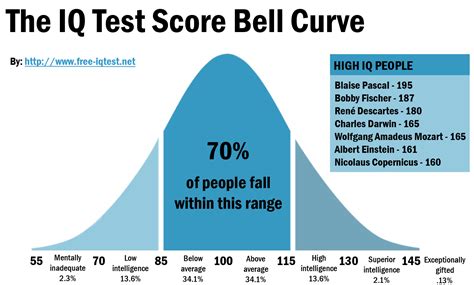The average IQ of an 11-year-old is 100, according to the Wechsler Intelligence Scale for Children (WISC-V). This means that an 11-year-old with an IQ of 100 has the same level of intelligence as the average 11-year-old.

However, it is important to note that IQ scores can vary widely, even among children of the same age. Some 11-year-olds may have IQ scores that are significantly higher or lower than 100.
Factors that Affect IQ
There are many factors that can affect a child’s IQ, including:
- Genetics: IQ is thought to be about 50% heritable, meaning that it is passed down from parents to children.
- Environment: The environment in which a child grows up can also have a significant impact on their IQ. Children who grow up in stimulating environments with access to good education and healthcare tend to have higher IQ scores than children who grow up in less stimulating environments.
- Nutrition: Good nutrition is essential for brain development. Children who do not get enough nutrients may have lower IQ scores than children who eat a healthy diet.
- Health: Certain health conditions, such as lead poisoning and fetal alcohol syndrome, can also lower IQ scores.
What is a Good IQ Score for an 11-Year-Old?
There is no such thing as a “good” or “bad” IQ score. IQ scores simply measure a child’s level of intelligence relative to other children of the same age. However, some people may believe that a higher IQ score is better than a lower IQ score.
IQ Scores and School Performance
IQ scores have been shown to be correlated with school performance. Children with higher IQ scores tend to do better in school than children with lower IQ scores. However, it is important to note that IQ scores are not the only factor that affects school performance. Other factors, such as motivation and effort, can also play a role.
IQ Scores and Future Success
IQ scores have also been shown to be correlated with future success. Children with higher IQ scores tend to have more successful careers and earn more money than children with lower IQ scores. However, it is important to note that IQ scores are not the only factor that affects future success. Other factors, such as personality and work ethic, can also play a role.
Conclusion
IQ scores are a measure of a child’s level of intelligence relative to other children of the same age. IQ scores can be affected by many factors, including genetics, environment, nutrition, and health. IQ scores have been shown to be correlated with school performance and future success, but they are not the only factor that affects these outcomes.
Frequently Asked Questions
What is the average IQ of an 11-year-old?
The average IQ of an 11-year-old is 100.
What factors can affect a child’s IQ?
Many factors can affect a child’s IQ, including genetics, environment, nutrition, and health.
Is a higher IQ score better than a lower IQ score?
There is no such thing as a “good” or “bad” IQ score. IQ scores simply measure a child’s level of intelligence relative to other children of the same age.
Are IQ scores correlated with school performance?
Yes, IQ scores have been shown to be correlated with school performance. Children with higher IQ scores tend to do better in school than children with lower IQ scores.
Are IQ scores correlated with future success?
Yes, IQ scores have been shown to be correlated with future success. Children with higher IQ scores tend to have more successful careers and earn more money than children with lower IQ scores.
